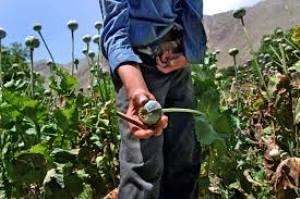The DEA releases its annual drug threat assessment, a new poll finds Texans are ready to legalize weed even if their political leaders are not, and more.

Minnesota Lawmakers Approve Legal Marijuana Business Rules, Including Strong Social Equity Provisions. The legislature has given final approval to a bill that sets out new rules for the state's soon-to-be recreational marijuana industry, House File 4757. Gov. Tim Walz (D) is expected to sign it into law.
The bill clarifies who will qualify as a social equity applicant. They will include not only residents of high-poverty areas, but also military veterans who are "emerging farmers."
It also sets a date for the opening of the social equity licensing window on July 24 and the closing of that window on August 12. For the first round of social equity licenses, winners will be chosen by lottery. Other windows for applications could open at later dates.
People who get those licenses will have to use them or lose them. They will have 18 months to get up and running, although they could seek a single six-month extension.
There will be limits on the number of licenses for cultivators, manufacturers, retailers, and vertically integrated "mezzobusinesses," but not for microbusinesses. And if local governments want to open their own retail stores, they can do so without seeking a state license.
Texas Poll Has Strong Majority for Marijuana Legalization. A new poll from the Texas Lyceum has three out of five Texans, including a plurality of Republicans, favoring marijuana legalization. The poll had support overall at 60 percent, up 14 points over the Lyceum's 2015 survey on the issue.
Of the three out of 10 Texans who oppose legalization, 42 percent of them said they could support decriminalization, but 47 percent were against even that modest reform.
"Taken together, 73 percent of Texans support either full legalization or decriminalization of marijuana in Texas according to 2024 polling," Lyceum said.
Support for legalization was strongest among Democrats (72 percent) and people aged 30-44 (71 percent), but weakest among those aged 65+ (49 percent), Republicans (49 percent) and self-described conservatives (46 percent).
Despite public opinion in the state, marijuana reform remains stifled in Austin, where conservative Republicans control the legislature and the governorship.
Drug Policy
DEA Releases 2024 National Drug Threat Assessment. The DEA has released its annual report on drug threats, which it calls a "comprehensive strategic assessment of illicit drug threats and trafficking trends endangering the United States." The assessment does not mention alternative approaches to prohibition. The assessment focuses squarely on Mexican drug trafficking organizations and the cocaine, fentanyl, heroin, and methamphetamine they import into the US. Two of those groups, the Cartel Jalisco Nueva Generacion and the Sinaloa Cartel are "responsible for the vast majority of drug trafficking in the United States."
"The shift from plant-based drugs, like heroin and cocaine, to synthetic, chemical-based drugs, like fentanyl and methamphetamine, has resulted in the most dangerous and deadly drug crisis the United States has ever faced," said DEA Administrator Anne Milgram. "At the heart of the synthetic drug crisis are the Sinaloa and Jalisco cartels and their associates, who DEA is tracking worldwide. The suppliers, manufacturers, distributors, and money launderers all play a role in the web of deliberate and calculated treachery orchestrated by these cartels. DEA will continue to use all available resources to target these networks and save American lives."
Noting more than 107,000 drug overdose deaths in 2022 and fentanyl's involvement in roughly two-thirds of them, DEA called the synthetic opioid "the nation's greatest and most urgent drug threat."
International
Afghans Eradicate More Than 27 Square Miles of Opium Crops. Provincial police in Badakshan province, the scene of deadly clashes between farmers and eradicators in recent weeks, said anti-drug officers had destroyed more than 17,500 acres -- or more than 27 square miles -- of opium poppies in the past month.
Eradication operations took place Baharak, Darayem, Teshkan, Yamgan, Yeftal Payan, Kashm, Juram, and Argo districts, as well as provincial capital, Faizabad City.
Afghanistan has long been the world's leading opium producer, but the UN Office on Drugs and Crime reports that cultivation has been slashed by 95 percent since the Taliban decreed a ban in April 22. Myanmar now holds the poppy production crown.
This work by StoptheDrugWar.org is licensed under Creative Commons Attribution-ShareAlike 4.0 International
Add new comment